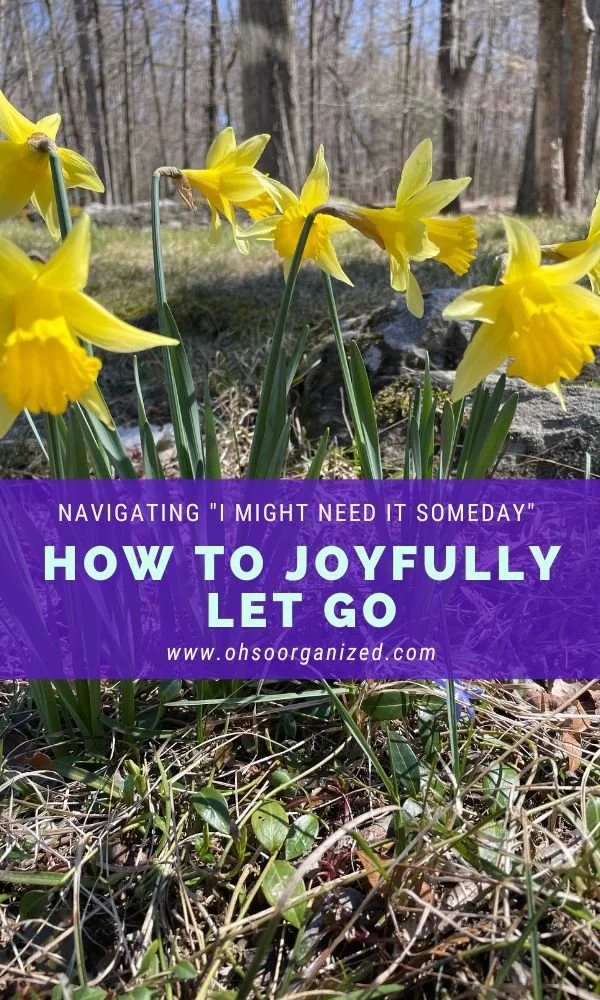With new flowers and buds appearing daily, spring brings hope and encouragement. My clients are letting go and lightening up. However, they sometimes place obstacles that make the process more challenging. Those roadblocks appear as unhelpful thoughts.
Have you noticed the power of the words you say and think? Your messages can inspire action or inaction, trigger motivation or discouragement, and help or hinder the letting go process.
Suppose you have decades of old bills in filing cabinets, piled on shelves, or stored in boxes. You’re questioning whether to keep or release them. The internal struggle begins. They aren’t bothering anyone and have an established ‘home,’ but they are taking up space. You haven’t looked at them in years and will unlikely ever refer to them. They have no financial value or record-keeping significance, yet they sit. You remain undecided about their fate.
The debate about the documents will continue until you make a decision. You might choose to keep or shred them. But until you decide, the papers will occupy physical and emotional space. Their weight is felt. Sometimes, you hold on because you anticipate the potential effort required to edit and let go. Yet, it also takes energy not to decide.
Deciding to hold on instead of letting go is a valid action. You can stop investing your mental energy once you choose to keep or release. Remember that choosing to hold on is not the same as ignoring to make a decision.
“Your messages can help or hinder the letting go process. ”
A Great Question When You’re Struggling to Let Go
I promised to share a great question when you’re struggling with decision-making. Your words have power, and semantics are potent. A slight tweak to how you pose a question can significantly affect the outcome. Inquiring in a particular way can make it more purposeful, encouraging, gentler, or less guilt-inducing.
A great question is the one that works best for you. The options below have similar meanings yet are phrased differently.
Is it time to let it go?
Is it time to put it down?
Is it time to release it?
Is it time to edit it?
Is it time to reduce it?
Is it time to move on?
Is it time to let it be?
Which one resonates most with you? Which one will help you choose and act? I’d love to hear your thoughts and invite you to join the conversation.
If you need help letting go, I’m here to help. Please email me at linda@ohsorganized.com, call 914-271-5673, or schedule a Discovery Call. Letting go is possible, especially with support.











